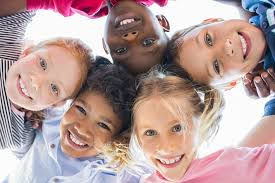Child Rights and how to promote them
- Nov 4, 2020
- 4 min read
Thirty years ago, the world’s greatest leaders agreed to protect children from both physical, social, and mental harms that may befall them. Despite that, many children are deprived of their rights, even today.
Children are individuals who are neither a possession of their parents, nor objects for anyone to control. Just like adults, children have their own rights and basic needs, although this is less recognized in some parts of the world. Today I will be talking about children’s basic needs, such as education, food, clean water, healthcare, and a supporting environment. So, let us begin:
Education
Education is crucial for children in this complicated world, where humans no longer have jobs that require manual labor and mostly live in urban areas. Sadly, around 20 percent of the world’s children get exploited and divested of their childhood, and rightful education.
But it is not as simple as you may think. Children do not stay home and work because their parents are spiteful and treat them unfairly. Most families suffer in poverty, and do not have the time, resources or money to send their child to school. Child labor happens for similar reasons: because the family suffers in extreme poverty, children must stay home to help and support their family and surrounding environment, therefore forcing them into child labor.
The lack of education in some countries is also caused by gender inequality. That’s right, women make up more than two-thirds of the world's 796 million illiterate people. They are shut out of school because of discrimination, poverty, or culture, even though women are a crucial part of society. It is estimated that 15 million girls are married before they turn 18. After their wedding, they abandon their education, and, armed with only a few educational skills, they start a family, most likely to be plagued by poverty. Educated woman have a greater chance of escaping poverty, leading healthier and more productive lives, and raising the standard of living for their children, families, and communities. Women are also a key part of our world’s politics and economy.

Children may be out of school for many reasons, such as having physical or mental disorders/disabilities. Nine out of ten children don’t go to school. According to an estimate, 75% of disabled children in Afghanistan don’t get primary education. Most of them are injured by landmines. Missing out education doesn’t only affect the quality of the life
of an individual, but also the economic state of the country. This is especially important to disabled people who need increased access to healthcare, and by having a good level of education their chances are much better. Overall, education is important for children. It helps both their individual needs and quality of life, as well as the social and economic impact on their countries. We need to ensure that children are well educated. After all, they are the future.

Healthcare
Healthcare is especially crucial for infants, who have the most vulnerable immune system, therefore making them the main target for threatening diseases, such as polio, rubella and even influenza. Unfortunately, 2500 children under five die within a day. Children should receive high-quality healthcare, regardless of nationality, gender, or race.
The main cause of high infant mortality is the low number of vaccinations, especially in developing countries. The government doesn’t have enough money, resources, equipment or trained doctors and nurses to create a safe and secure health care system that is appropriate for children. This includes their developing physical and mental capacity, their dependence on adults to meet their health needs and their changing roles. As a result, children have a reduced chance of protecting themselves and are more vulnerable to the negative intentions of anyone.
Children have the vital right of having access to secure and safe healthcare. Not only physical, but mental too. Low quality healthcare may reduce the life expectancy in many countries and lead to a perilous future.

Clean water and Food
Malnutrition is a huge problem in our world. Over 847 million people suffer from a low amount of food on the table, or unsafe drinking water. The saddest thing is that while other fellow children complain of how “Disgusting” their food is, in other less developed countries, these children have barely anything to eat. Just remember that, before you refuse to eat your dinner.
Malnutrition exposes children to a variety of diseases and decreases the chances of them being able to fight, overcome and survive them. The effects of malnutrition may also be long-lasting. For those children, education and healthcare are highly likely to be unavailable.
Support from a Parent/Guardian
That’s right, a healthy mental state is as important as a physical one. Students with supporting parents tend to earn higher grades, have better social skills and are more likely to graduate successfully. We all need parents. Why?
Parents should be there for children and help them find their path to adulthood. Parental support is proven to be also often linked with higher student achievement. This is no surprise, since a talented student needs both comfort and pressure to do better in school.
Children who have supportive parents also have more developed social skills and may therefore lead a more affluent life, being able to communicate and complete tasks with greater efficiency, doing work at both a higher quality and quantity.
Supportive parents or guardians are important for a growing child. They need guidance through finding themselves and growing up.
These were only a small fraction of the rights and basic needs of a child. Unfortunately, some children still get deprived of their basic needs. It’s cruel, it’s harsh, it’s true. Hopefully, in the future everyone will work harder towards achieving them. Powerful people, wealthy people and people like you.









































Comments